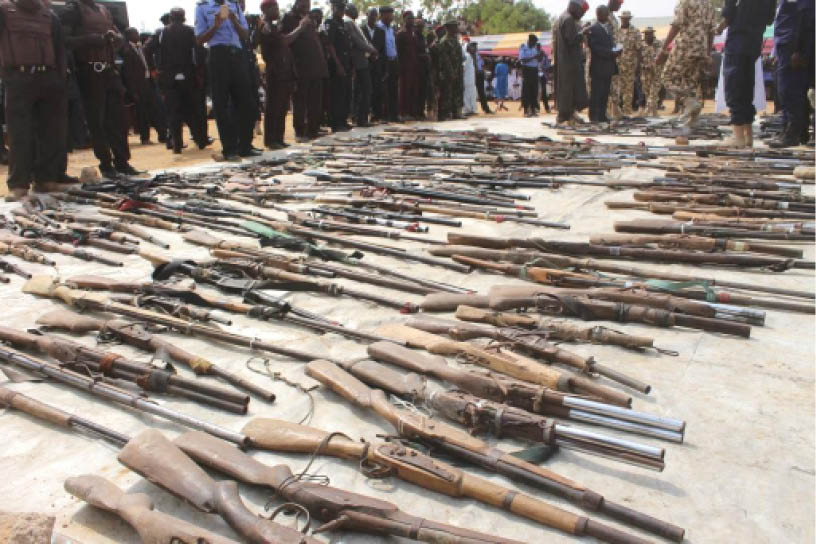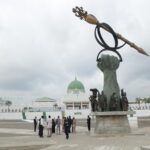Modern societies are based on one founding principle: that the purpose of the social contract is to prevent anarchy. It is predicated on the idea that individuals have consented, explicitly or tacitly, to surrender some of their rights and freedoms to the authority of a government. In exchange, the government will protect the lives and property of every individual, enforce contractual obligations and protect the society against external threats. The point is to prevent the Hobbesian state of nature in which man is lawless and unrestrained and thus life becomes “poor, nasty, brutish, and short”.
- Between armed banditry, food insecurity and malnutrition in Nigeria
- How to end banditry in North – Bagudu
This is the notion upon which Nigeria was built. To achieve social order, our constitution and laws regulated our behaviour by defining crimes such as murder, assault and theft as well as civil wrongs like breach of contract, and provided sanctions for them. Our laws charged the government with the responsibility of enforcing those laws and regulations. To ensure smooth sailing in a country with diverse peoples with multiple, often conflicting interests, the constitution made one fundamental provision: it concentrated the legitimate use of physical force and of securing us in the federal government by placing the control of the military, the police, intelligence agencies and all paramilitary bodies under the president.
Today, the social contract is so weak that its very fulcrum is under a serious threat. It started with a call for the decentralisation of the police so that each state would be allowed to set up and control its law enforcement. The implication of this is that governors will acquire the power to import weapons and determine who can carry firearms – in a hostile environment like ours, it is hard to envision a policing system in which firearms do not play a part.
When efforts do to this at the national level through constitutional amendment failed, the six South-Western states took what can at best be described as an extra-constitutional means and unilaterally formed the security outfit called Operation Amotekun. The federal government initially declared Amotekun illegal before essentially backtracking by saying it would work with them. Today, Amotekun personnel are carrying arms, going on patrols in cities and arresting alleged offenders without any legal backing or sufficient training. Little surprise that, in the last three weeks alone, Amotekun is reported to have shot and killed four people in different incidents including a student of the University of Ibadan and a police officer.
With the escalating violence in the North West, an even more dangerous idea started to develop. It is the proposal to allow community members carry lethal weapons to defend themselves. This suggestion has since garnered support from traditional rulers, politicians and others. It further escalated last weekend when 50 villages in Katsina State protested by blocking the highway for five hours and then gave government a four-day ultimatum to confront the bandits that are killing, kidnapping, robbing and raping them or they would arm themselves in self-defence.
The argument that, since the government has failed to protect people, they should be allowed to defend themselves may sound logical. But it is extremely dangerous. Not only does it transfer responsibility to the victims, but it is also a sure road to complete anarchy. It puts innocent lives at the risk of mob action and invites retaliation and counterretaliation. Considering the ethnic dimension the crisis in the North West is increasingly taking, it could lead to inter-communal violence on a scale not seen before.
Furthermore, communities are simply incapable of protecting themselves against well-armed, very experienced criminal groups. The AK47-series rifle which is commonly used by the criminal groups costs about $1,200, or over N600,000. This, in the poverty capital of the world, is unaffordable to even the above average citizen. The overwhelming majority of the rural Nigerians who bear the brunt of the violence earn less than $500 a year. We’ve already seen an example of what the situation could be like last Sunday when criminals launched a retaliatory attack on Kaya in Kaduna State killing 19 people.
What is more, the evidence shows that more guns do not stop crime. In fact, they increase bloodshed. Take the United States for example. It is one of the three countries where citizens have a constitutional right to bear arms, the other two being Mexico and Guatemala. By one 2018 estimate, private American citizens own 393 million guns, with around 40 per cent of households owning at least one. That’s to say there are more guns in the United States than there are human beings. Just like many Nigerians carry multiple mobile phones, so do some Americans own firearms.
Going by the logic of the proponents of self-help, the US should be the safest place in the world. But the reverse is the case. In 2020 alone, over 43,000 Americans died of gun violence, with about 24,000 being suicide and the rest being homicide. And this staggering number is in fact a reduction from 2016 – 2018 when over 55,000 died every year. This puts the US at the top of the list of developed countries with the worst gun violence. No other country comes even close, partly because those countries don’t allow citizens to bear arms.
This above figures show that the number of Americans dying of gun violence each year is more than the total number of Nigerians that died in the 10 years of the Boko Haram crisis and five times more than the total fatalities of the criminal groups in the North West. If guns in the hands of citizens lead to 40,000 deaths in a country with strong security and law enforcement like America, what could happen in Nigeria? In Northern Nigeria, in addition to our endemic poverty, over 70 per cent of our youths lack education and employment. A majority of the educated are unemployed or insufficiently paid. Even without multiple ethnic differences and historical grievances, a right to bear arms in the name of self-defence would be a recipe for monumental disaster.
A far better solution to the security crisis would be for President Buhari to do his job. More and more northerners have started speaking up recently, but we need to do more to make it clear to an insensitive government that this situation is unacceptable. All of us have got to play our role in securing our country, but jungle justice will plunge us into the state of nature where our lives will be poorer, nastier, more brutish and shorter.

 Join Daily Trust WhatsApp Community For Quick Access To News and Happenings Around You.
Join Daily Trust WhatsApp Community For Quick Access To News and Happenings Around You.


